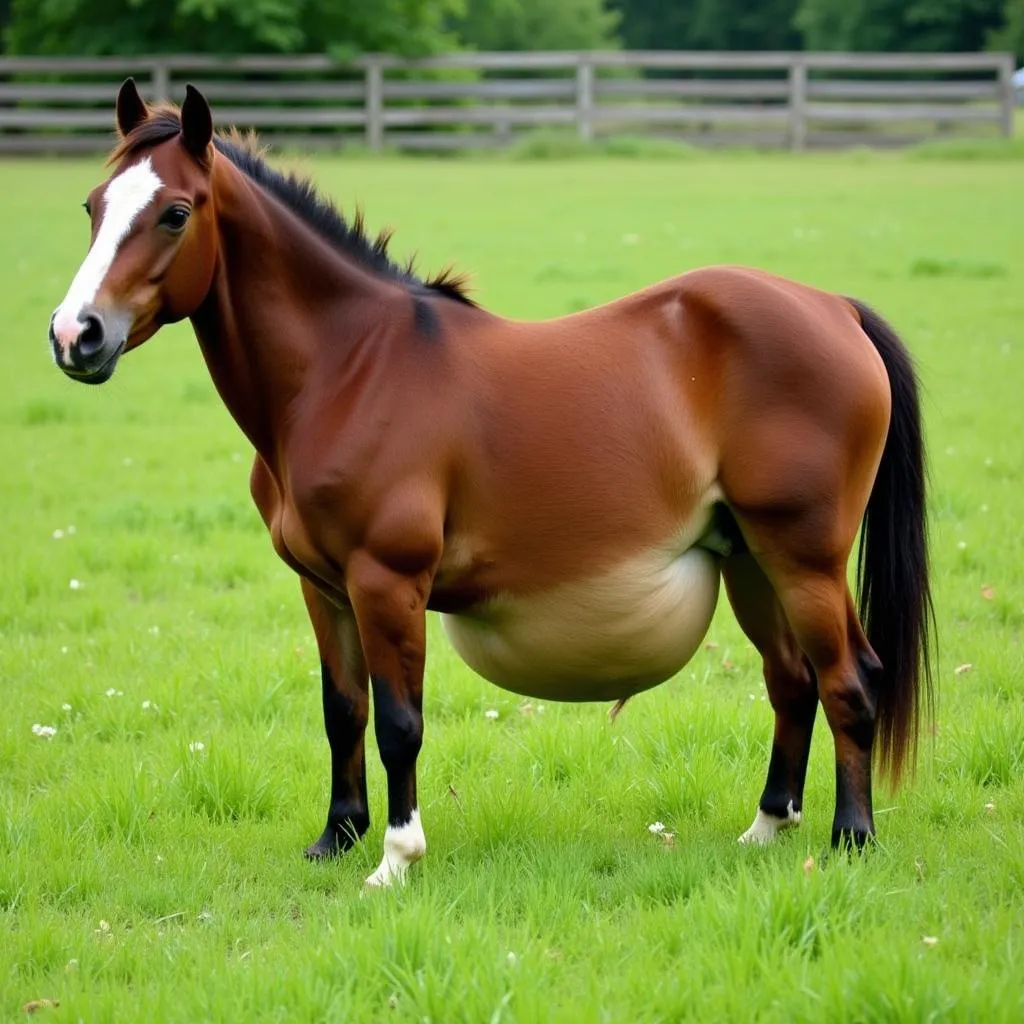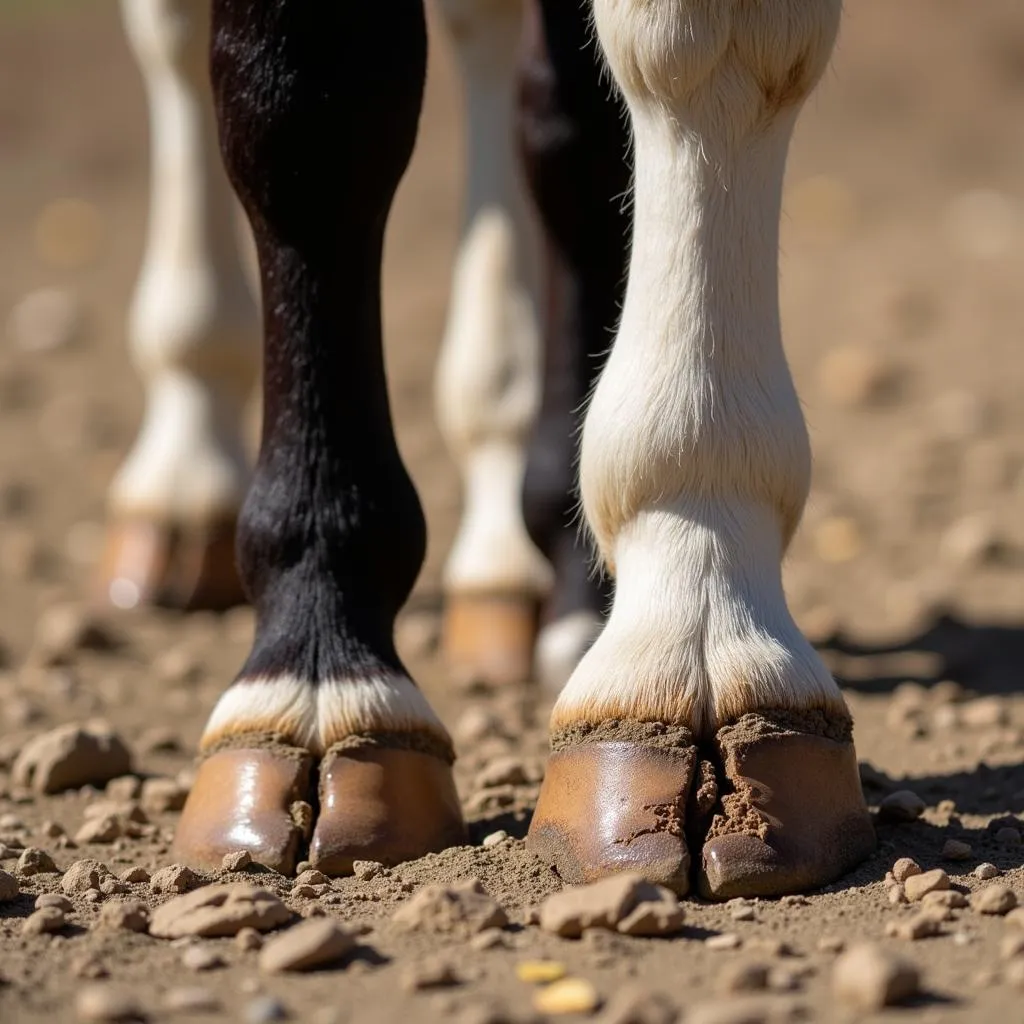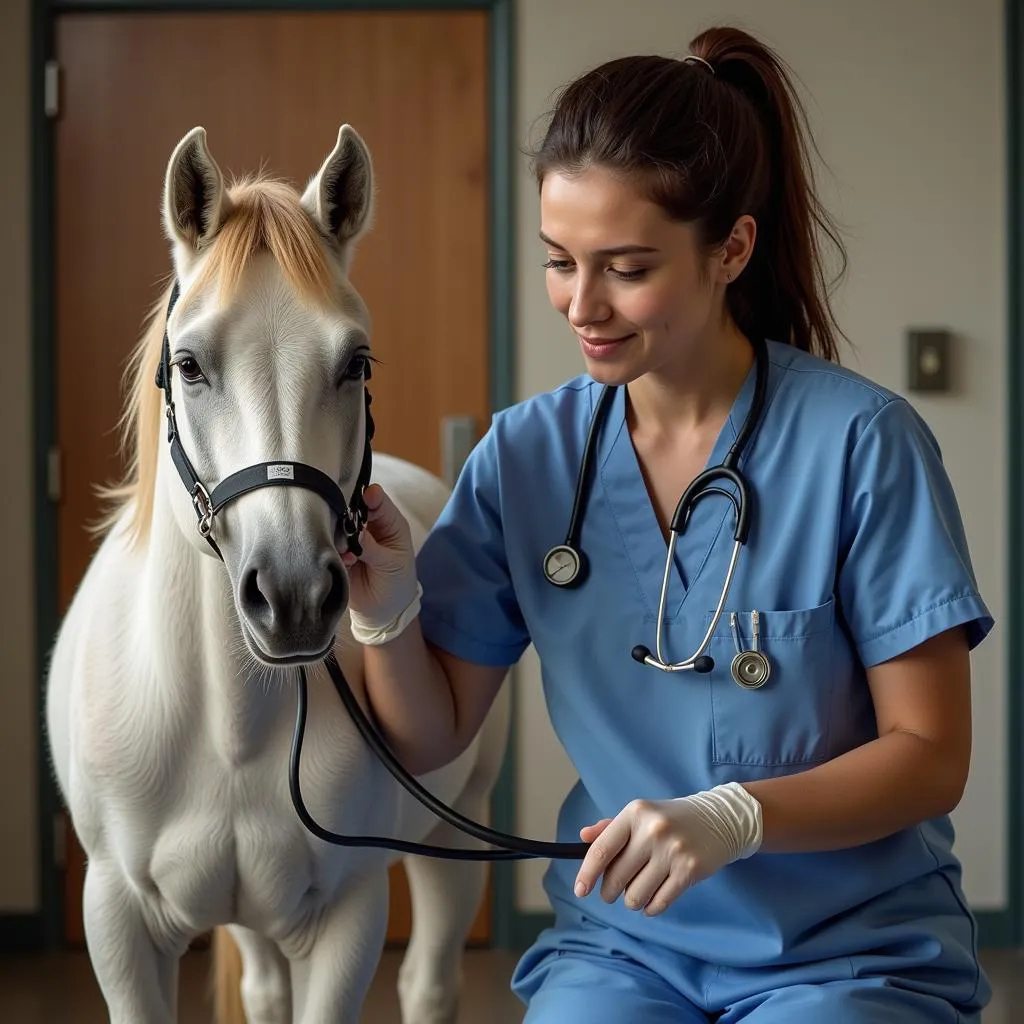The phrase “Land Of Little Horses Neglect” might sound unfamiliar, but it represents a harsh reality for many equines around the world. These animals, often miniature breeds or ponies, are susceptible to a unique set of welfare challenges that stem from their size and the common misconceptions surrounding their care. While the image of a neglected horse often conjures up thoughts of emaciation, the suffering of these smaller equines can manifest in subtler ways, making it even more critical to understand and address their needs.
The Misunderstood Needs of Little Horses
Miniature horses and ponies are often seen as easy keepers, requiring less care than their larger counterparts. This misconception can have detrimental consequences. Just like any horse breed, these animals have specific dietary, environmental, and social needs that must be met for them to thrive.
 Miniature Horse Overgrazing on Lush Pasture
Miniature Horse Overgrazing on Lush Pasture
- Dietary Neglect: One of the most common forms of neglect is overfeeding. Lush pastures or excessive amounts of grain can lead to obesity, laminitis (a painful hoof condition), and other health problems.
- Lack of Dental Care: Just like large horses, miniature horses require regular dental checkups and care. Neglected teeth can cause pain, difficulty eating, and even abscesses.
- Inadequate Shelter: While hardy, these animals still need protection from the elements. Lack of adequate shelter from sun, wind, rain, and snow can compromise their health.
- Insufficient Exercise and Enrichment: Miniature horses are naturally curious and active. Confined spaces and lack of mental stimulation can lead to boredom, stress, and behavioral issues.
 Miniature Horse with Overgrown and Neglected Hooves
Miniature Horse with Overgrown and Neglected Hooves
Recognizing the Subtle Signs of Neglect
Identifying neglect in little horses requires a keen eye and understanding of their specific needs. Here are some key indicators:
- Body Condition: While not emaciated, an overweight or obese miniature horse is a clear sign of dietary neglect. Look for fat deposits around the neck, shoulders, and tailhead.
- Hooves: Overgrown, cracked, or misshapen hooves are a sign of inadequate farrier care.
- Coat Condition: A dull, rough coat can be a symptom of nutritional deficiencies, parasites, or other health issues.
- Behavioral Changes: Lethargy, aggression, or stereotypic behaviors (repetitive, abnormal movements) can all be indicators of stress, boredom, or pain.
Taking Action: How to Help
If you suspect a miniature horse is being neglected, it is crucial to take action:
- Document your concerns: Take photos and detailed notes of the horse’s condition, living environment, and any signs of neglect.
- Contact the appropriate authorities: Reach out to your local animal control, humane society, or equine rescue organization.
- Be a voice for the voiceless: Spread awareness about the unique needs of miniature horses and the importance of responsible ownership.
 Miniature Horse Receiving Veterinary Care
Miniature Horse Receiving Veterinary Care
Justus Horses USA: Your Partner in Equine Welfare
At Justus Horses USA, we are committed to improving the lives of all equines, big and small. We believe that education and responsible ownership are key to preventing neglect and ensuring the well-being of these incredible animals.
Contact us today to learn more about miniature horse care, responsible ownership, and how you can make a difference in the fight against equine neglect.